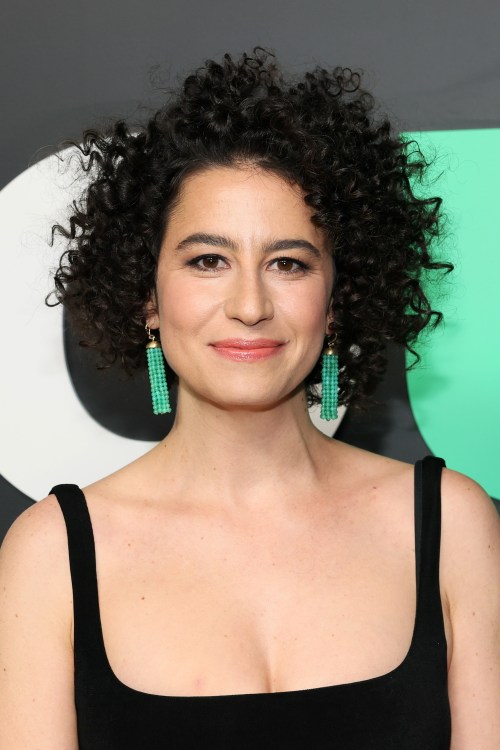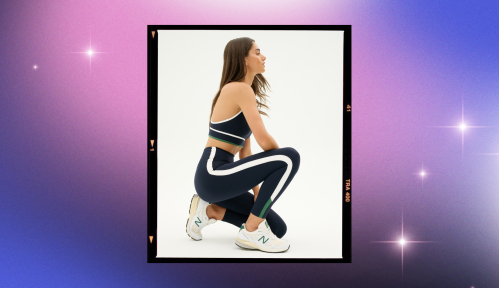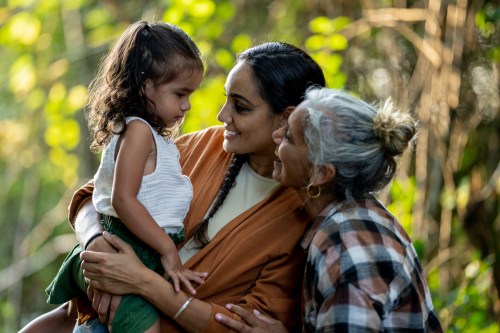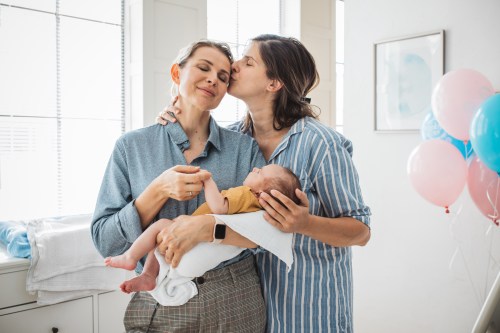The global femtech industry—aka technology focused on supporting and improving female health—is expected to be worth over $3 billion by the end of 2030. It’s an incredibly lucrative field of innovation, with over half of the industry specifically focused on reproductive health in the form of period tracking apps. Yet the tech industry at large continues to be dominated by white male founders, executives, and entrepreneurs—and within the femtech industry itself, there are very few apps and companies owned by Black, Indigenous, and people of color (BIPOC).
Experts in This Article
Tabitha Holbért is the founder and CEO of women’s health tech company Artemis.
Enter Tabitha Holbért, a tech entrepreneur who taught herself to code after a car accident derailed her acting career. She first founded and sold YOGO, a booking app for private yoga sessions, before turning her attention to the menstrual health tech space. Her newest venture is Artemis, which launched in the fall with a unique free period tracking app aiming to help people better understand their experiences throughout the menstrual cycle—and communicate them with their health-care providers. A patented wearable meant to reduce period pain will follow hopefully in 2021, and Holbért plans to grow the business from there to meet the needs of her community.
“I think that Black women, especially, need to know about their bodies,” Holbért tells Well+Good. “I could tell you stories of just appalling things that I’ve seen in my life happen to Black women.” She cites the experience of her sister, who was denied care for her uterine fibroids for over a year while she was in prison—until she needed emergency surgery to address the football-sized fibroids. By that point, she had to have her whole uterus removed, which Holbért believes could have been avoided if she received care far earlier. This experience and others inspired her to try and find a way to empower people with uteruses over their menstrual and reproductive health—and thus Artemis was born.
Well+Good recently spoke to Holbért about her new endeavor, her plans for the future, and why it’s so important for Black women in particular to take ownership of their health.
Well+Good: What drew you to the women’s health tech space?
Tabitha Holbért: I remember getting chronic yeast infections as a girl, and I had no idea what they were or why I was getting them. There are just so many things a woman needs to track outside of fertility and non-fertility. No one tells women things [about their bodies], and that kind of unknowing stays with women from girlhood to womanhood. I don’t think women know about the four stages of their period, I don’t think women know that tracking their stress or anxieties or chronic pelvic pain or yeast can help them start seeing correlations.
And then I would sit and think about how we can make a Tesla, but women still have to suffer through period cramps… There are just so many problems waiting to be solved. And how do you solve a problem? Bite by bite. Artemis is a company aiming to advance the lives of women with technology. So I thought we’d start from the beginning with the app. But an app is not true advancement, especially if you have to pay for it. Ours is forever free because I don’t believe a woman should have to pay to learn about her body.
Let’s start with the app, then. How does it differ from other period-tracking apps on the market?
TH: It starts like any other period tracker, where you input the date of your last period—and your cycle length if you know it—and the app starts to learn your cycle from there. Then on any given day, you can input your symptoms but with nuance. We’re trying to help women create language around their symptoms. We don’t have emoticons for that reason.
So let’s say you’re feeling pain—what level is it at? Are you bed-bound? Can you stand? All the way from those extremes to the other end of the spectrum—not having cramps. (By the way, one of our male investors told me “bed-bound” was “extreme” and I had to educate him around the fact that there are women who absolutely are bed-bound by period pain.) The emojis [used by other period-tracking apps] didn’t work for me to express those distinctions. I can’t go to the doctor and say, “I was three lightning bolts and a teardrop.”
But if a woman goes to the doctor and can say, “I have burning pain during sex,” and then the doctor can ask if it burns when her partner enters her and if she says yes, then [they] can diagnose her with pelvic pain disorder—then you’re getting somewhere. If women don’t have the language, how are they supposed to communicate? I had to go to so many doctors about the pain I was in before I was finally heard. What about the women who aren’t as radical, who aren’t as feisty? Who are told to keep their pain quiet? They need a voice, they need language. And Artemis is data-backed so they can go and say, “I’ve been in pain,” and then show them the data around that pain.
Again, it’s also forever free, which sets it apart from others. Also, a lot of these companies are run by men, and a lot of them are fertility-focused, revolving around when you can and can’t get pregnant. But women are multifaceted and there are other things they want to track. And I want to build it with my users. If there are other things they tell us they want to track, we’ll help them track them.
And speaking of pain—tell me about the forthcoming cramp relief device.
TH: I was hit by a car and ended up in the hospital for a long time, in a lot of pain. So I’ve just kind of been obsessed with pain. So like I said, I thought it was crazy that we haven’t found a solution for the pain of period cramps.
I’ve been working on this product since before we started designing the app, and it now has 11 provisional patents. It’s a 7.3-millimeter device, so it’s thinner than an iPhone. Basically, it utilizes gate control theory to relieve the pain. [Editor’s note: Gate control theory is the idea that non-painful stimuli can stop pain inputs from reaching the central nervous system—explaining, for example, why rubbing your knee after hitting it on something can make it feel better.] The technology is multifaceted, but the main feature is vibration, which distracts your brain from the pain.
There are three presets. One is random vibrations—I actually like to do that one when I’m working out because it amps me up. Then there’s a wave setting, which is basically like the kneading of one of those massage chairs. And then the third setting is just deep [vibrations]; it’s intense and stays at one level. I like that one when I’m working because it’s less distracting. The device can be used either for your uterus or your lower back—that’s one of our provisional patents, that it can be used in both places. And you can adhere it to the skin—we worked really hard at getting the right adhesive—or we have a period panty with a little pocket you can drop it into.
Because I’m such a gym rat, actually, a lot of our testers were from my gym. But we had a diverse sample. I gave one to an MTA worker. I gave one to my friend in Texas who has seven kids. I wanted to make sure they worked for all women, and I wanted them to get smacked around to see if they would break. They are set to launch in fall 2021.
What else do you have planned for Artemis at this point?
TH: We’re working on a warming device for period cramps, so that’ll be one of the next products, but we won’t release it until we get it 100 percent right. And we’re also plotting an at-home pap smear. From there, we really want women to build Artemis with us. We want to know what they want and create it for them. But the app will be forever free. Even if you’re able to check how your baby develops over pregnancy—if women want something like that, for example—it’ll still be forever free because you should have access to your own information.
Do you feel a specific responsibility or call to help Black women, since they’ve been notoriously neglected and mistreated in the realm of menstrual and reproductive health?
TH: This world is hard on Black women. We are resilient, but we have to take ownership of our health because no one’s going to do it for us. There are medical inequities in this country the pandemic has shown us—there is a gaping hole where Black people and people of color fall into and die. So Black women have to vigilant. And those inequities and biases are why things like free period tracking and the at-home pap smear are really important to us—so Black women can better look out for themselves. I make things with the intention of advancing the lives and health of all women.
This interview has been edited and condensed for clarity.
Oh hi! You look like someone who loves free workouts, discounts for cult-fave wellness brands, and exclusive Well+Good content. Sign up for Well+, our online community of wellness insiders, and unlock your rewards instantly.
Sign Up for Our Daily Newsletter
Get all the latest in wellness, trends, food, fitness, beauty, and more delivered right to your inbox.
Got it, you've been added to our email list.











